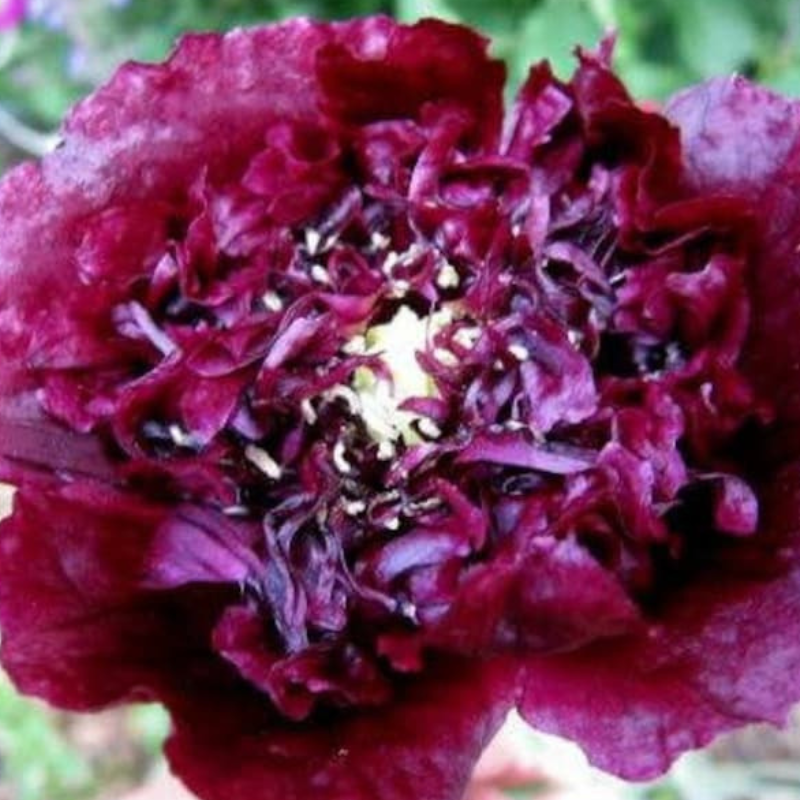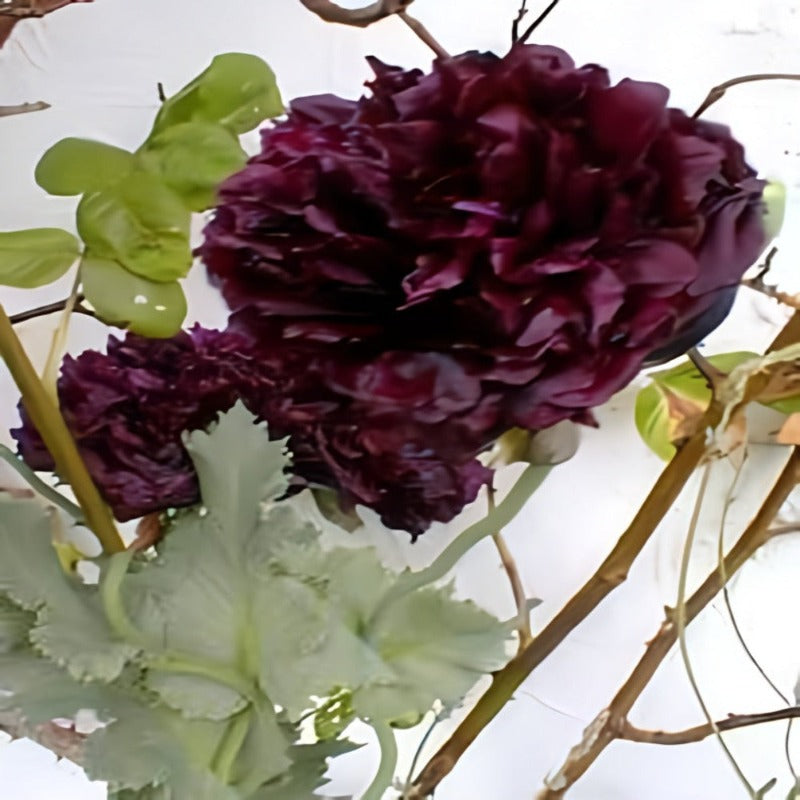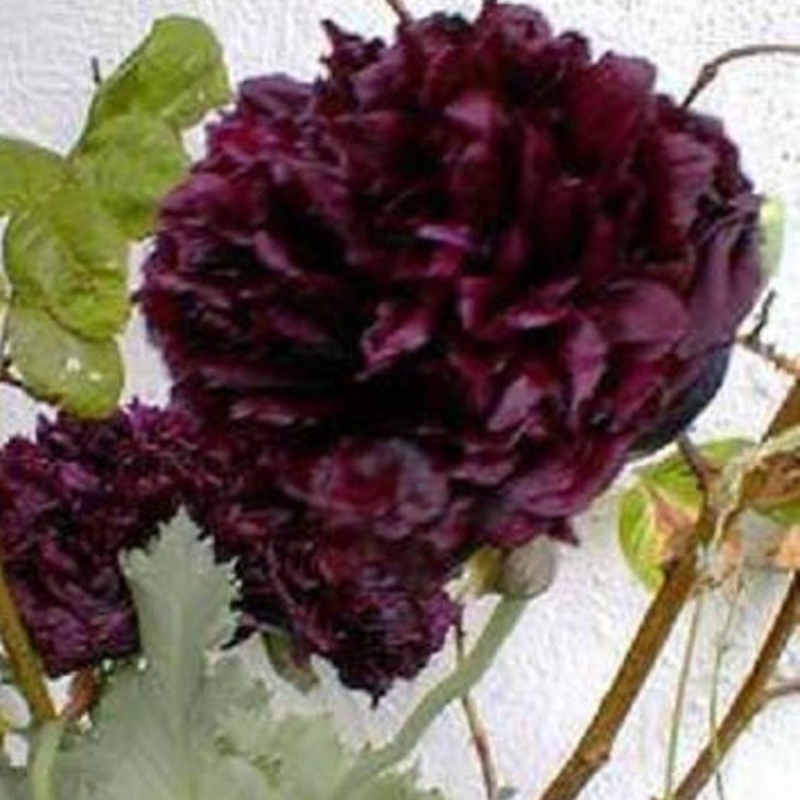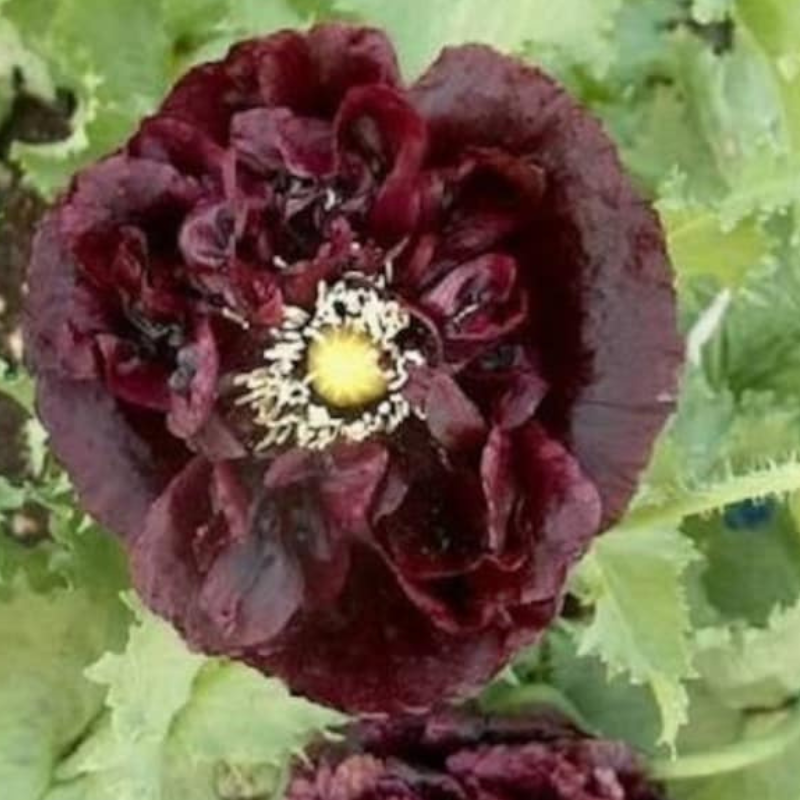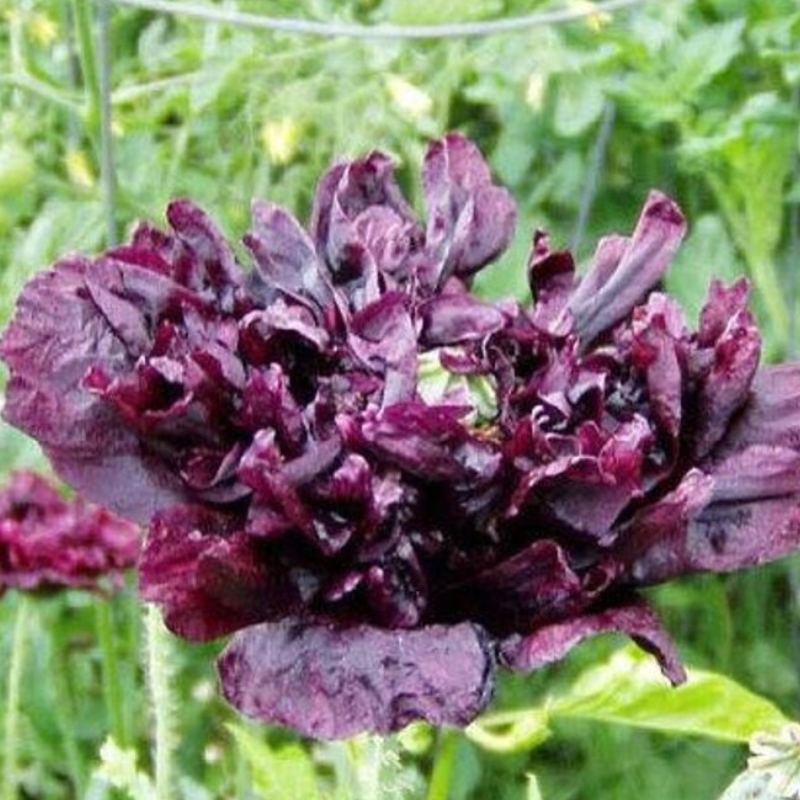- Historical context: Papaver peoniflorum, commonly known as the peony-flowered poppy, is a variety of the opium poppy (Papaver somniferum). It has been cultivated for its ornamental value due to its large, peony-like flowers.
- Geographical origination: This variety is believed to have originated in the Mediterranean region, similar to other opium poppy varieties.
- Relevant cultural significance: The peony-flowered poppy has been appreciated in ornamental gardens for centuries, particularly in Europe and North America.
- Time period of discovery: The exact time period of discovery is not well-documented, but it has been cultivated for ornamental purposes for several hundred years.
- Original habitat: Papaver peoniflorum thrives in temperate climates and is often found in gardens and cultivated fields.
- Notable historical uses: While primarily grown for its aesthetic appeal, like other opium poppies, it has also been historically used for medicinal purposes, although this is less common for the peony-flowered variety.
- Ideal temperature range: Papaver peoniflorum grows best in temperatures ranging from 55°F to 75°F (13°C to 24°C).
- Soil type: It prefers well-drained, fertile soil with a neutral to slightly alkaline pH.
- Sunlight requirements: Full sun is ideal for optimal growth and flowering.
- Watering needs: Moderate watering is required. The soil should be kept moist but not waterlogged.
- Planting season: The best time to plant Papaver peoniflorum seeds is in early spring or fall.
- Germination time: Seeds typically germinate within 10 to 14 days under optimal conditions.
- Growth cycle duration: The plant usually takes about 90 to 120 days to reach full maturity and bloom.
- Common pests and diseases: Common pests include aphids and slugs. Diseases such as powdery mildew and root rot can also affect the plant.
- Companion planting advice: Good companion plants include marigolds, which can help deter pests, and other sun-loving annuals.
- Common challenges and solutions: Overwatering can lead to root rot. Ensure proper drainage and avoid waterlogged soil. Aphids can be controlled with insecticidal soap or natural predators like ladybugs.
- Nutritional values: Papaver peoniflorum seeds are not typically consumed for nutritional purposes.
- Health benefits: While the seeds themselves are not used medicinally, the plant is related to the opium poppy, which has been used historically for its analgesic properties.
- Culinary uses: The seeds of Papaver peoniflorum are not commonly used in culinary applications.
- Medicinal uses: This variety is not commonly used for medicinal purposes, unlike its relative, Papaver somniferum.
- Other unique advantages: Ornamental Value: The primary benefit of Papaver peoniflorum is its striking, peony-like flowers, which add a dramatic and colorful element to gardens.
Pollinator Attraction: The flowers attract bees and other pollinators, which can benefit the overall health of a garden ecosystem.
